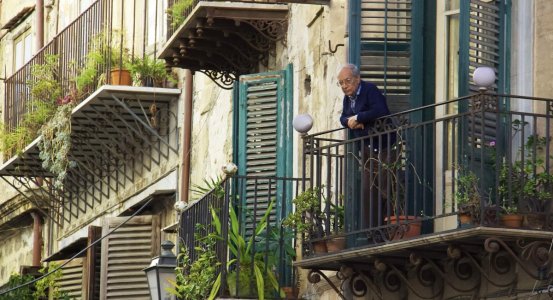Seniors are choosing new living options—with one key factor driving the move
- Replies 0
Many were taught that owning a home was the ultimate goal in life. It symbolized stability, pride, and independence.
But recent shifts are showing that more older adults are choosing a different path when it comes to where and how they live. With changing needs and rising costs, the traditional idea of retirement living is being redefined.
While renting has slowed among younger adults, seniors are leading the charge in choosing lease agreements over mortgages.

Homeownership can be demanding, both financially and physically. From property taxes to roof repairs, the work never stops. Renting, on the other hand, offers a simpler lifestyle. Older adults are now using that freedom to relocate—often to warmer areas such as Texas, Florida, and Louisiana.
In Baton Rouge alone, the share of seniors renting increased by about 88.7% over the last decade. The COVID-19 pandemic also sped up this change. After experiencing isolation and uncertainty, many older adults are prioritizing ease and adaptability.
For many retirees, renting isn’t just a preference—it’s a necessity. Skyrocketing home prices, rising mortgage interest rates, and ever-higher maintenance costs have made homeownership less attainable for those on fixed incomes.
Steve Sexton, CEO of Sexton Advisory Group, noted, “This trend is fueled by both convenience and necessity; however recent economic uncertainty is the more likely driver of seniors renting in retirement.”
Also read: Some places might surprise you as the best for seniors living alone
For retirees managing their money carefully, monthly rent offers stability. Unlike owning a home, there are no surprise repair bills or property tax spikes. Still, that doesn’t mean renting is always affordable. A 2024 report from the Joint Center for Housing Studies found that more than 40% of senior renters spend over 30% of their income on rent.
That puts them in the “cost burdened” category by federal standards.
Seniors now see independence as the ability to move closer to loved ones, downsize when needed, or explore new cities. Renting makes that flexibility possible.
Also read: Seniors are finding new purpose through this program—are you missing out?
Communities built for renters also offer added benefits—like fitness centers, group activities, and help with upkeep. These perks make it easier to stay active, connected, and independent.
While most Americans over 65 still own their homes, over 7 million now rent. That number is expected to grow quickly over the next decade.
Jeff Lichtenstein, CEO of Echo Fine Properties, warned, “In the next decade, there will be an explosion of baby boomers in that age group. As one loses a spouse or looks at financing, there should be more of a need to rent.”
With inflation continuing to rise, experts believe many Boomers will find renting more financially manageable.
Read next: What are these seniors doing after retirement? It may warm your heart

Have you made the switch from owning to renting? Are you weighing your options or facing new challenges in today’s market? Your experience could guide others navigating the same decisions. Let’s hear your thoughts in the comments—your insight matters.
But recent shifts are showing that more older adults are choosing a different path when it comes to where and how they live. With changing needs and rising costs, the traditional idea of retirement living is being redefined.
More older adults are choosing to rent, not own
A new study by Point2Homes revealed a striking trend. The number of Americans aged 65 and older who rent has increased by nearly 30% in the last ten years. That means 2.4 million more older renters today—more than any other age group.While renting has slowed among younger adults, seniors are leading the charge in choosing lease agreements over mortgages.

With changing needs and rising costs, the traditional idea of retirement living is being redefined. Image Source: Mihály Köles / Unsplash
Why are seniors making this shift?
The answer is a mix of lifestyle preferences and economic pressures. Many Boomers are looking for freedom from the maintenance and responsibilities of homeownership. As Florida realtor Alexei Morgado explained, “Seniors value the flexibility renting provides, which can allow them to downsize, move to better locations, or avoid the responsibility that comes with owning a home and its expenses.”Homeownership can be demanding, both financially and physically. From property taxes to roof repairs, the work never stops. Renting, on the other hand, offers a simpler lifestyle. Older adults are now using that freedom to relocate—often to warmer areas such as Texas, Florida, and Louisiana.
In Baton Rouge alone, the share of seniors renting increased by about 88.7% over the last decade. The COVID-19 pandemic also sped up this change. After experiencing isolation and uncertainty, many older adults are prioritizing ease and adaptability.
For many retirees, renting isn’t just a preference—it’s a necessity. Skyrocketing home prices, rising mortgage interest rates, and ever-higher maintenance costs have made homeownership less attainable for those on fixed incomes.
Steve Sexton, CEO of Sexton Advisory Group, noted, “This trend is fueled by both convenience and necessity; however recent economic uncertainty is the more likely driver of seniors renting in retirement.”
Also read: Some places might surprise you as the best for seniors living alone
For retirees managing their money carefully, monthly rent offers stability. Unlike owning a home, there are no surprise repair bills or property tax spikes. Still, that doesn’t mean renting is always affordable. A 2024 report from the Joint Center for Housing Studies found that more than 40% of senior renters spend over 30% of their income on rent.
That puts them in the “cost burdened” category by federal standards.
The cultural shift around aging and independence
Older generations once viewed homeownership as the key to freedom. But today, freedom is being redefined.Seniors now see independence as the ability to move closer to loved ones, downsize when needed, or explore new cities. Renting makes that flexibility possible.
Also read: Seniors are finding new purpose through this program—are you missing out?
Communities built for renters also offer added benefits—like fitness centers, group activities, and help with upkeep. These perks make it easier to stay active, connected, and independent.
While most Americans over 65 still own their homes, over 7 million now rent. That number is expected to grow quickly over the next decade.
Jeff Lichtenstein, CEO of Echo Fine Properties, warned, “In the next decade, there will be an explosion of baby boomers in that age group. As one loses a spouse or looks at financing, there should be more of a need to rent.”
With inflation continuing to rise, experts believe many Boomers will find renting more financially manageable.
Thinking about renting in retirement? Ask yourself this:
- Would downsizing or relocating make your life easier?
- Are you ready to say goodbye to home repair costs?
- Does a fixed monthly budget sound appealing?
- Would you enjoy more social opportunities or amenities?
- Is the current housing market making it difficult to buy or stay put?
Read next: What are these seniors doing after retirement? It may warm your heart
Key Takeaways
- The number of baby boomer renters in the US has surged by almost 30% over the past decade, adding 2.4 million older renters—more than any other age group.
- Many seniors are choosing to rent due to the flexibility, reduced maintenance, and ability to relocate to warmer or more desirable areas.
- Rising home prices, inflation, and fixed incomes are making renting a more practical option for older adults.
- Over 40% of senior renters are considered cost burdened, spending more than 30% of their income on rent, and this issue is expected to worsen.






